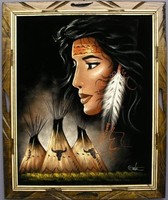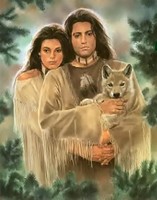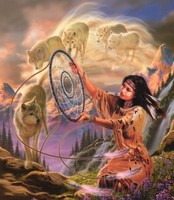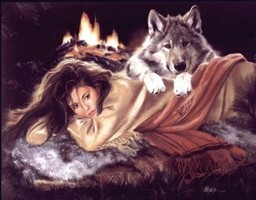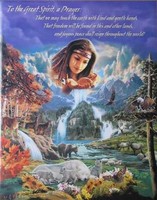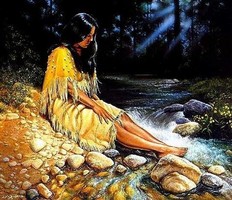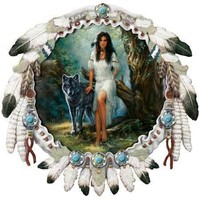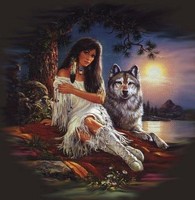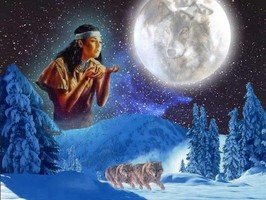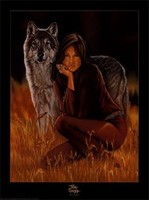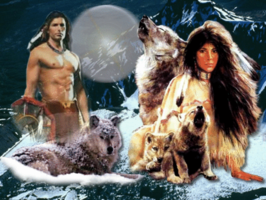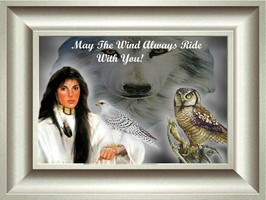TOTEMS
Totems are widely regarded as guardians and helpers who offer protection and support, particularly in times of adversity. However, to my people totems (from the word ototeman) have
a deeper significance. Native Americans recognise that as the Great Spirit is present in all things, His essence may seek to communicate with the enlightened through anything from a tree or a crystal
to an animal, all of which could be considered totems. The wise should be watchful for these signs which could represent omens for the
future.
Amerindians relate particularly strongly to the animals which are most familiar to us because we perceive in them qualities which may be emulated to our advantage. These qualities include the wisdom of the owl, the strength of the bear, the stealth of the cougar and the cunning of the fox. These animals are regarded by us as archetypes although never as deities, despite the fact that in some ways they take the place of gods in our quest stories. By learning about the ways of these animals we can understand aspects of the Great Spirit who would be much more difficult to comprehend in His entirety.
Many centuries ago each clan gravitated towards an allegiance with a particular animal or totem beast which best represented their own nature. After several generations these tribes came to regard their totem beast as a kind of spiritual ancestor. Gradually they also came to understand that people born at different times of the year have different qualities which corresponded with the qualities of twelve totem animals, one for each month of the year, somewhat like the Chinese zodiac
KACHINAS and WAKAN TANKA
The main difference between the benevolent spirits known by Native Americans as kachinas and those known to Jews, Christians and Muslims as angels is that kachinas may represent anything, not just the soul of a departed loved one or an astrological being linked with a particular star or constellation like the zodiacal angels. A kachina could also represent the spirit of a tree or even a crystal. These benevolent beings are always disposed to help humans and never to be the instrument of God’s wrath or judgement.
The Amerindian perspective of the Creator Wakan Tanka is unlike the view held by the major religions of a god who rewards the good and punishes the wicked. The Great Spirit represents nature and the creative forces which have no conception of sin, any more than a wolf or a thunderstorm is capable of sinning. Amerindians have a strong code of morality but it is based on a combination of honour and pragmatism rather than arising from a fear of eternal damnation or a hope of rewards in the afterlife. The onus is therefore on each Amerindian to be a good and honourable person and for this sense of morality to come from within the individual rather than imposed from without. Having said that, I certainly count myself as a good and decent person and have helped many people to lead far happier and more fulfilling lives.

